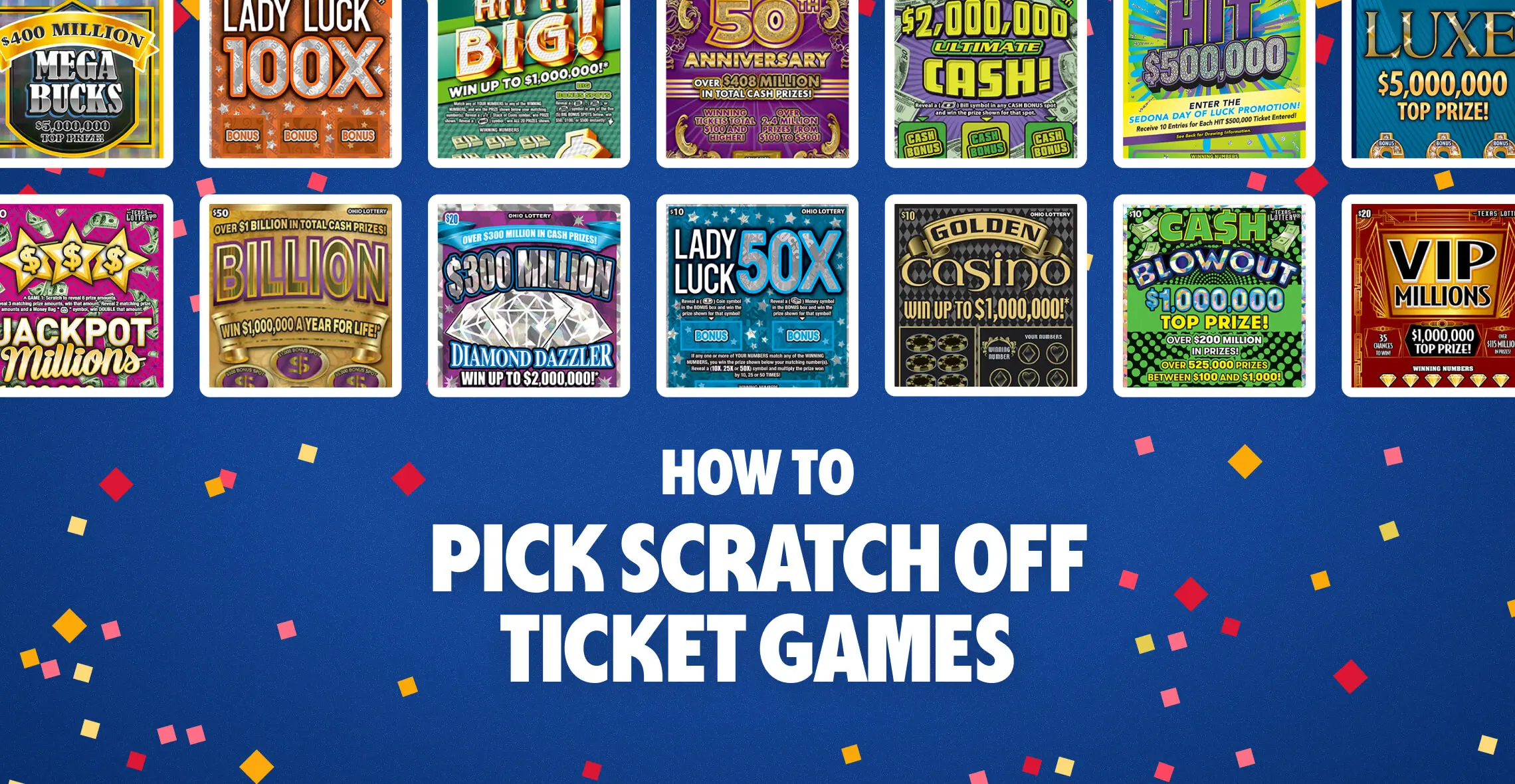How to Pick Scratch Off Ticket Games: A Comprehensive Guide to Maximizing Your Chances
Written by Jackpot Staff
Updated: December 22, 2025

Tired of randomly picking scratch off tickets that never win? You're not just playing a game; you're looking for value. Choosing the right instant ticket can feel like pure luck, but there are powerful, data-backed strategies that can significantly improve your odds of walking away with a cash prize.
In this guide, we'll explore the world of scratch off tickets and reveal data-backed strategies that can help you select games with better winning potential.
Understanding Scratch Off Odds of Winning and Prize Structures
The Basics of Scratch Off Ticket Probability
Every scratch off game comes with predetermined odds calculated by the state lottery. These odds represent your chances of winning any prize, from small amounts to life-changing jackpots. The overall odds are determined by dividing the total number of tickets printed by the number of winning tickets available.
What many players don't realize is that ticket price significantly impacts these odds:
- $1-$2 tickets: Typically offer odds around 1:4.50 to 1:5.00 with smaller top prizes (usually under $10,000)
- $5-$10 tickets: Improve to approximately 1:3.50 to 1:4.00 with mid-range jackpots
- $20-$30 tickets: Provide the best odds, often 1:2.75 to 1:3.50, with potential multi-million dollar prizes
Higher-priced tickets not only offer better odds but also frequently deliver better returns on investment. Analysis of scratch off games across multiple states shows that $20 tickets typically return about 70-85 cents per dollar spent, while $1 tickets might only return 50-60 cents on average.
Beyond Overall Odds: Understanding Expected Value
Smart scratch off players look beyond the advertised overall odds to consider a game's expected value – a mathematical concept that helps determine if a game offers good value for your money.
The expected value calculates what you can expect to win, on average, for each dollar spent. This calculation considers the remaining prizes in a game and the number of tickets still in circulation. For example, Florida's $30 "Fastest Road to $1,000,000" scratch off had an expected value of 83% at one point, meaning players would theoretically recover 83 cents for every dollar spent – much better than the average lottery return.
Tracking Remaining Scratch Off Prizes: A Critical Strategy
Why Remaining Prize Data Matters
Did you know that approximately 10% of scratch off games still being sold have no top prizes remaining? This means someone buying these tickets has zero chance of hitting the advertised jackpot!
Most state lottery websites maintain real-time databases showing exactly how many prizes remain for each game. For example, visiting the Pennsylvania Lottery website shows you precisely how many $5,000, $10,000, or $1 million prizes remain for each scratch off game they sell.
Finding "Ripe" Games with Prize Potential
When is the ideal time to play a scratch off game?
- All or most top prizes remain unclaimed
- The game is relatively new (70-90% of all prizes are still available)
- The game hasn't been "picked over" by other players
For example, a newly released $20 game with all top prizes remaining presents better value than a nine-month-old game with only one jackpot left. Some lottery enthusiasts specifically target games that have been available for 1-2 months – enough time for the tickets to be widely distributed, but not so long that major prizes have been claimed.
Using third-party tools like the Jackpot app makes tracking remaining prizes even easier. These platforms often allow you to set alerts when new games launch.
How to Purchase Scratch off Tickets: Strategic Approaches
The Sequential Ticket Strategy
Lottery tickets aren't manufactured with winners truly randomly distributed. Instead, manufacturers often create "guaranteed prize structures" within sequences of tickets.
This pattern creates an opportunity for strategic purchasing:
- Buy 5-10 tickets sequentially from the same game roll
- If possible, purchase tickets from fresh rolls (ask the retailer)
- Continue playing a roll where you've already found small-to-medium wins, as bigger prizes might follow
A Texas Lottery study revealed that players who purchased consecutive tickets from the same roll had a 23% higher win rate than those buying random tickets across different games.
Price Point Optimization: Finding the Sweet Spot
While higher-priced tickets generally offer better odds, they also come with a higher upfront cost. The best approach depends on your budget and what you’re hoping to get out of the experience:
| Ticket Price | Best For | Average Return | Prize Structure |
|---|---|---|---|
| $1-$2 | Casual players with limited budgets | $0.52-$0.60 per dollar | Frequent small wins, few big prizes |
| $5-$10 | Balanced approach for regular players | $0.58-$0.68 per dollar | Good mix of small and significant prizes |
| $20-$30 | Serious players seeking better ROI | $0.70-$0.85 per dollar | Fewer small prizes, better shot at big wins |
Making the Most of Second-Chance Drawings
The Hidden Value in "Losing" Tickets
Over 40 state Lotteries now offer second-chance drawings where non-winning tickets can be entered for additional prizes. These programs transform "losing" tickets into new opportunities for cars, vacations, cash prizes, and even jackpots.
To maximize second-chance opportunities:
- Create an online account with your state lottery
- Save all non-winning tickets until you've entered them
- Set calendar reminders for entry deadlines
- Consider focusing on games with special second-chance promotions
- Allocate a fixed monthly "fun money" budget for scratch offs (experts suggest no more than 0.5% of income)
- Document wins and losses to track your actual return
- Take breaks after losing streaks rather than "chasing" losses
- Celebrate small wins instead of immediately reinvesting them in more tickets
- Check remaining prizes: Visit your state lottery website or use an app like Jackpot.com to identify games with ample unclaimed prizes.
- Consider the expected value: Look for newer games where the majority of prizes remain unclaimed.
- Choose the right price point: Select tickets that align with your budget while offering the best possible odds.
- Buy tickets strategically: Purchase multiple consecutive tickets from the same roll rather than single tickets from different games.
- Enter second-chance drawings: Don't throw away non-winners; enter them in second-chance promotions.
- Track your results: Keep a simple record of purchases, wins, and losses to understand your actual returns.
- Stay informed: Follow lottery news and announcements about new game releases.
In 2024, a Maryland player won a $100,000 vacation package after entering a non-winning $5 "Lady Luck" scratch off in a second-chance drawing. The player later mentioned that fewer than 50,000 people had entered the drawing, creating substantially better odds than the original scratch off game.
Responsible Play and Budget Management
Setting Smart Limits
The excitement of scratch offs can sometimes lead to unplanned spending. Financial experts recommend treating lottery play as entertainment with clear boundaries:
A study tracking 1,000 regular scratch off players found that those using budget-tracking methods spent 37% less annually while reporting higher satisfaction with their lottery experience.
How to Pick Scratch Off Tickets
Here's a step-by-step approach to selecting scratch off games with better winning potential:
By combining these approaches, you transform random scratch off purchases into more strategic decisions. While no strategy guarantees jackpots (they wouldn't be lottery games if they did!), these evidence-based tactics significantly improve your experience compared to purely random selection.
Informed Choices for Better Scratch Off Lottery Experiences
The world of scratch off tickets doesn't have to be a complete mystery. By understanding odds, tracking prize data, and applying strategic purchasing approaches, you can make more informed choices that stretch your entertainment dollar further.
So what are you waiting for? Put these insights to work the next time you purchase scratch off tickets, and you might just discover a more rewarding lottery experience!
Looking for an even easier way to apply these strategies? Consider using Jackpot.com, where you can compare odds, check remaining prizes, and order scratch offs directly from your phone or computer. Our platform makes it simple to see exactly which games offer the best potential return.
Frequently Asked Questions About Picking Scratch Off Tickets
Q: What is the best strategy for picking scratch off tickets?
A: Regularly checking the official state lottery data for remaining top prizes is often considered the most impactful tactic, in addition to combining strategies. Playing games where major prizes are already gone significantly lowers your chances of a big win.
Q: Are more expensive scratch off tickets ($20-$30) more likely to win?
A: Generally, higher-priced scratch off tickets offer better overall odds of winning any prize and higher average payout percentages (expected value). However, always check the specific game's details and remaining prizes, as a cheaper ticket with all top prizes left might be a better choice than an expensive one with few jackpots remaining.
Q: How do I find out how many prizes are left for a specific scratch off game?
A: Check your state lottery's official website or mobile app – look for a section listing scratch games and their remaining prize data. Platforms like Jackpot.com also often provide this information conveniently.
Q: Does buying several scratch off tickets in a row actually work?
A: Some evidence suggests buying several consecutive tickets from the same roll may slightly increase your odds of finding a winning ticket within that batch compared to random single purchases, due to how prizes are sometimes distributed. However, it doesn't guarantee a win, especially a large one. Prioritize games with good overall odds and remaining prizes first.
Q: Which specific scratch off tickets win the most?
A: No single ticket guarantees a win. Success comes from strategy: Choose games with favorable odds (often higher price points), verify plenty of top prizes are still available, and consider buying sequentially.
Q: Should I only play brand-new scratch off games?
A: Brand-new games guarantee all prizes are available, which is a plus. However, some players wait a few weeks for tickets to be more widely distributed before checking remaining prizes and jumping in. Avoid games that have been out for a long time and have few major prizes left.
Q: Are $1 scratch offs worth buying?
A: $1 tickets are the most affordable way to play, but typically have the lowest odds of winning and the smallest prize amounts. They are generally better suited for casual entertainment than for players strategically trying to maximize potential returns.

